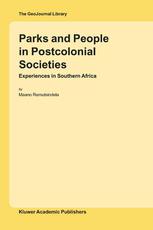

Most ebook files are in PDF format, so you can easily read them using various software such as Foxit Reader or directly on the Google Chrome browser.
Some ebook files are released by publishers in other formats such as .awz, .mobi, .epub, .fb2, etc. You may need to install specific software to read these formats on mobile/PC, such as Calibre.
Please read the tutorial at this link: https://ebookbell.com/faq
We offer FREE conversion to the popular formats you request; however, this may take some time. Therefore, right after payment, please email us, and we will try to provide the service as quickly as possible.
For some exceptional file formats or broken links (if any), please refrain from opening any disputes. Instead, email us first, and we will try to assist within a maximum of 6 hours.
EbookBell Team

4.4
42 reviewsAgainst the background of colonial and postcolonial experiences, this volume shows that power relations and stereotypes embedded in the original Western idea of a national park are a continuing reality of contemporary national and transnational parks. The volume seeks to dispel the myth that colonial beliefs and practices in protected areas have ended with the introduction of ‘new’ nature conservation policies and practices. It explores this continuity against the backdrop of the development of the national park idea in the West, and its trajectories in colonial and postcolonial societies, particularly southern Africa.
This volume analyses the dynamic relations between people and national parks and assesses these in southern Africa against broader experiences in postcolonial societies. It draws examples from a broad range of situations and places. It reinserts issues of prejudices into contemporary national park systems, and accounts for continuities and interruptions in national parks ideals in different contexts. Its interpretation of material transcends the North-South divide.
This volume is accessible to readers from different academic backgrounds. It is of special interest to academics, policymakers and Non-Governmental Organisations. This book can also be used as prescribed or reference material in courses taught at university.